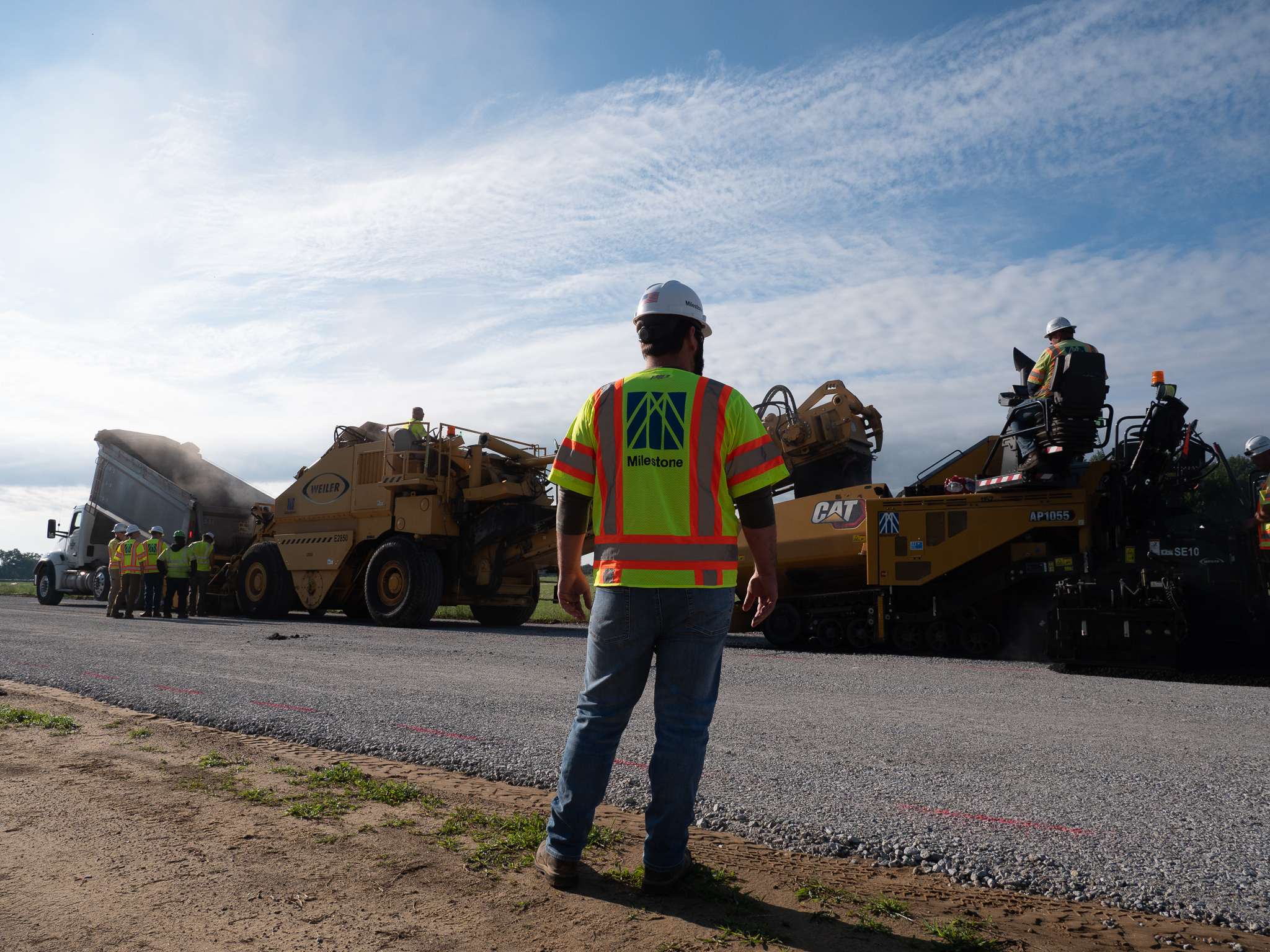When most people think about road construction, the first thing people think is someone working with a shovel or running a piece of heavy equipment.
And while that’s definitely part of it, the truth is this industry offers a full career path that most industries do not.
One that can take you from an entry-level laborer to a manager leading multi-million-dollar projects.
If you’re willing to learn, grow, and take on new responsibilities, civil construction rewards hard work with real opportunities.
Step 1: Start as a Laborer
Definition: A laborer is the backbone of any road construction project. By that we mean that they are involved in every part. From prep to final cleanup, a laborer is alwasys needed.
They help with site prep, move materials, and assist operators and crews with day-to-day work.
This role is your entry ticket into the industry.
It’s where you’ll learn safety, how job sites are organized, and the basics of building roads. No degree required; however, training offered through unions could be available to you. A solid work ethic and willingness to learn are the most important things.
Many people start here and move up quickly once they prove themselves.
Step 2: Become a Heavy Equipment Operator or Estimator
After getting your start as a laborer, there are many ways you can go, but we will focus on two of the most popular options:
- Heavy Equipment Operator: Run bulldozers, graders, excavators, pavers and anything else on the jobsite with an engine. Operators are essential for shaping and building the road itself. You’ll usually need on-the-job training, union training, or certification.
- Estimator: Estimators focus on the numbers of the project calculating what it will take (time, materials, labor, and cost) to complete a project. If you’re good with math, problem-solving, and details, this is a career where you can move from the field into an office role while still staying closely tied to the work.
Both paths raise your value, your pay, and your career potential.
Step 3: Foreman and Taking on Leadership
Moving from “doing” to “leading” is the next step. A foreman oversees crews, and makes sure the work gets done safely, on schedule, and up to the specifications of the client!
A good foreman is someone who:
- Knows the work firsthand from experience
- Communicates clearly with both workers and managers
- Keeps safety and productivity top priorities
Step 4: Project Manager
Project managers are the ones running the show on the jobsite, it’s not a job for everyone. If you ar eready to lead and take on responsibility, maybe you could be a project manager.
They plan schedules, coordinate crews, order materials, and make sure the entire job stays on budget. They’re problem-solvers who see the big picture and keep everything moving.
Often, project managers start as laborers, operators, or estimators and work their way up by learning both field and office sides of construction.
Step 5: Senior Leadership or Specialty Roles
At the top of the ladder, you’ll find roles like Construction Manager, Superintendent, or Environmental Specialist.
- Construction Manager/Superintendent: Oversee multiple projects or large-scale operations.
- Environmental Specialist: Focus on erosion control, stormwater management, and sustainability practices to make sure road projects meet today’s environmental standards.
These roles combine deep industry knowledge with leadership skills and they’re some of the highest-paid positions in civil construction.
✅ Takeaway: You don’t need a four-year degree to succeed in civil construction. With the right attitude, training, and experience, you can build a career that grows with you from laborer to leader.
